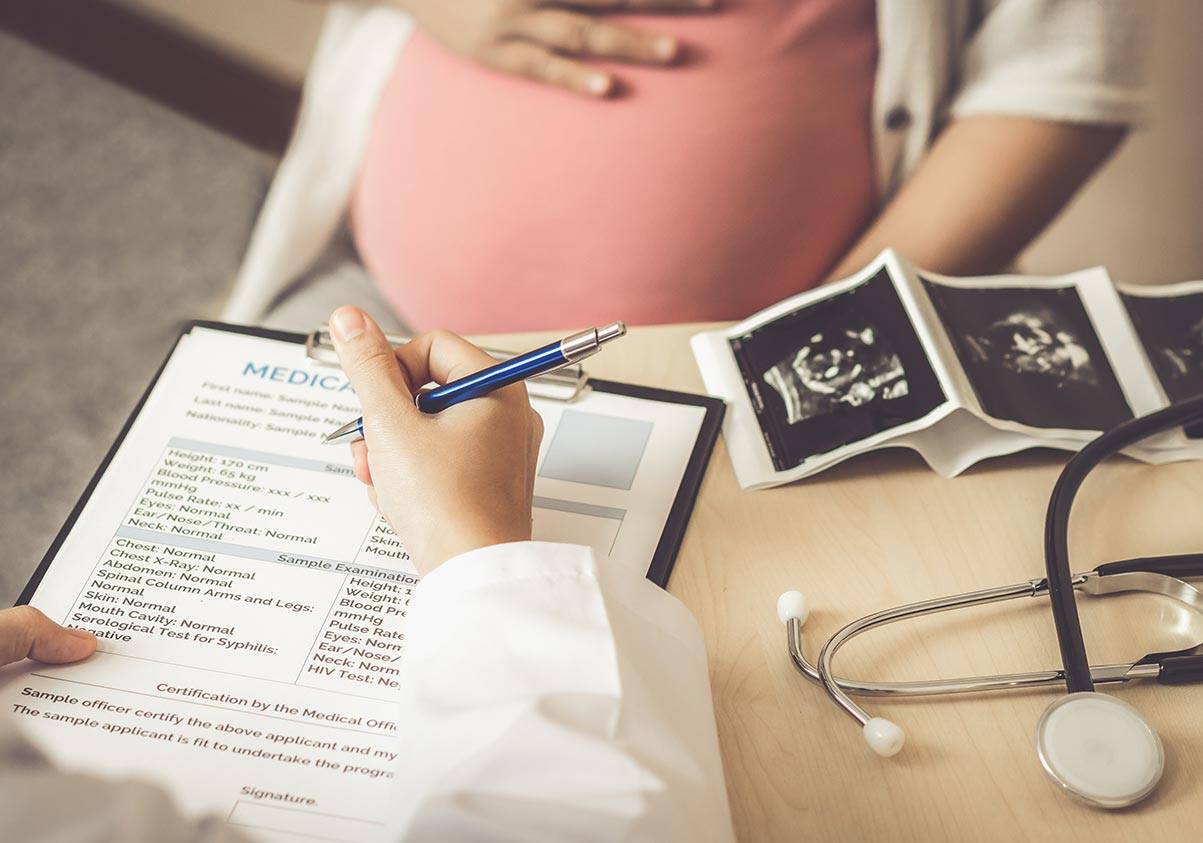
The NIMGenetics team of professionals has extensive experience in providing NGS services for prenatal diagnosis. We offer a complete sequencing service with the highest quality standards, adapting to the needs of prenatal diagnosis specialists in terms of sample processing, in the throughput needed for each test and in genetic counselling.
NIMGenetics has different sequencing platforms, ranging from traditional Sanger models to the latest-generation systems, including the NovaSeq 6000 sequencer (Illumina), which provides unparalleled power, flexibility and throughput. By using this state-of-the-art equipment, we offer the latest available technology, providing reliability and shorter turnaround times.
Targeted gene panel sequencing for a specific phenotype.
For cases where there is a known genetic pathology or a defined phenotype, we recommend a limited approach to a set of genes that explain a significant percentage of the fetal abnormalities.
This test is indicated in:
If a variant is identified in the prenatal sample, NIMGenetics will perform the necessary segregation analyses to determine the inheritance pattern, confirming or ruling out its association with the phenotype.
Turnaround time: 20 working days from receipt of the sample.
Reference: Check here
Please remember to attach the Application Form and Informed Consent Form to the sample, which you will find on the right.
Based on sequencing the 19,000 genes of the whole exome, ExoNIM® Prenatal Targeted allows us to perform a targeted analysis of selected genes according to the fetal phenotype.
This approach offers a greater diagnostic yield, as it allows us to extend the study to ExoNIM® Prenatal Trio through parallel sequencing of the parents, if required.
Carrying out a preliminary study of the genes being analysed is essential in order to evaluate coverage and rule out the presence of homologous regions in the selected genes.
These tests are indicated in:
If a variant is identified in the prenatal sample, NIMGenetics will perform the necessary segregation analyses to determine the inheritance pattern, confirming or ruling out its association with the phenotype.
Turnaround time: 20 working days from receipt of the sample.
Reference: Check here
Please remember to attach the Application Form and Informed Consent Form to the sample, which you will find on the right.
ExoNIM® Prenatal TRIO provides a complete response in the shortest possible time. By simultaneously sequencing parent and proband exomes, we can prioritise the fetal phenotype and segregate the variants. This approach helps to identify the causal variants of the patient's phenotype.
The main advantages of this approach are:
The variants included in the ExoNIM® Prenatal Trio report are pathogenic and likely pathogenic with evidence of association with the patient's phenotype. The remaining variants are available upon the request of the specialist.
Fetal remains testing includes:
This test also includes:
PLEASE NOTE: To carry out this test, it is essential that the prenatal sample is accompanied by the parents’ blood samples to rule out maternal contamination of the prenatal sample and to perform the family segregation analysis following the results of the test.
Turnaround time: 20 working days from receipt of the sample.
Reference: Check here
Please remember to attach the Application Form and Informed Consent Form to the sample, which you will find on the right.
Genetic testing for Noonan syndrome and other rasopathies in fetal samples. This system is based on NGS (Next-Generation Sequencing) and ensures full coverage of the 14 genes previously associated with this syndrome.
If a variant is identified in the prenatal sample, NIMGenetics will perform the necessary segregation analyses to determine the inheritance pattern, confirming or ruling out its association with the phenotype.
Turnaround time: 30 working days from receipt of the sample.
Reference: REP7001
Please remember to attach the Application Form and Informed Consent Form to the sample, which you will find on the right.
Indicated in cases where there is a known genetic pathology, and a molecular study has been carried out previously on a direct relative.
The test is performed on amniotic fluid or a chorionic villus biopsy, and it is also essential to have a peripheral blood sample from the parents and/or previously diagnosed relative.
Turnaround time: 20 working days from receipt of the sample.
Reference: CHECK